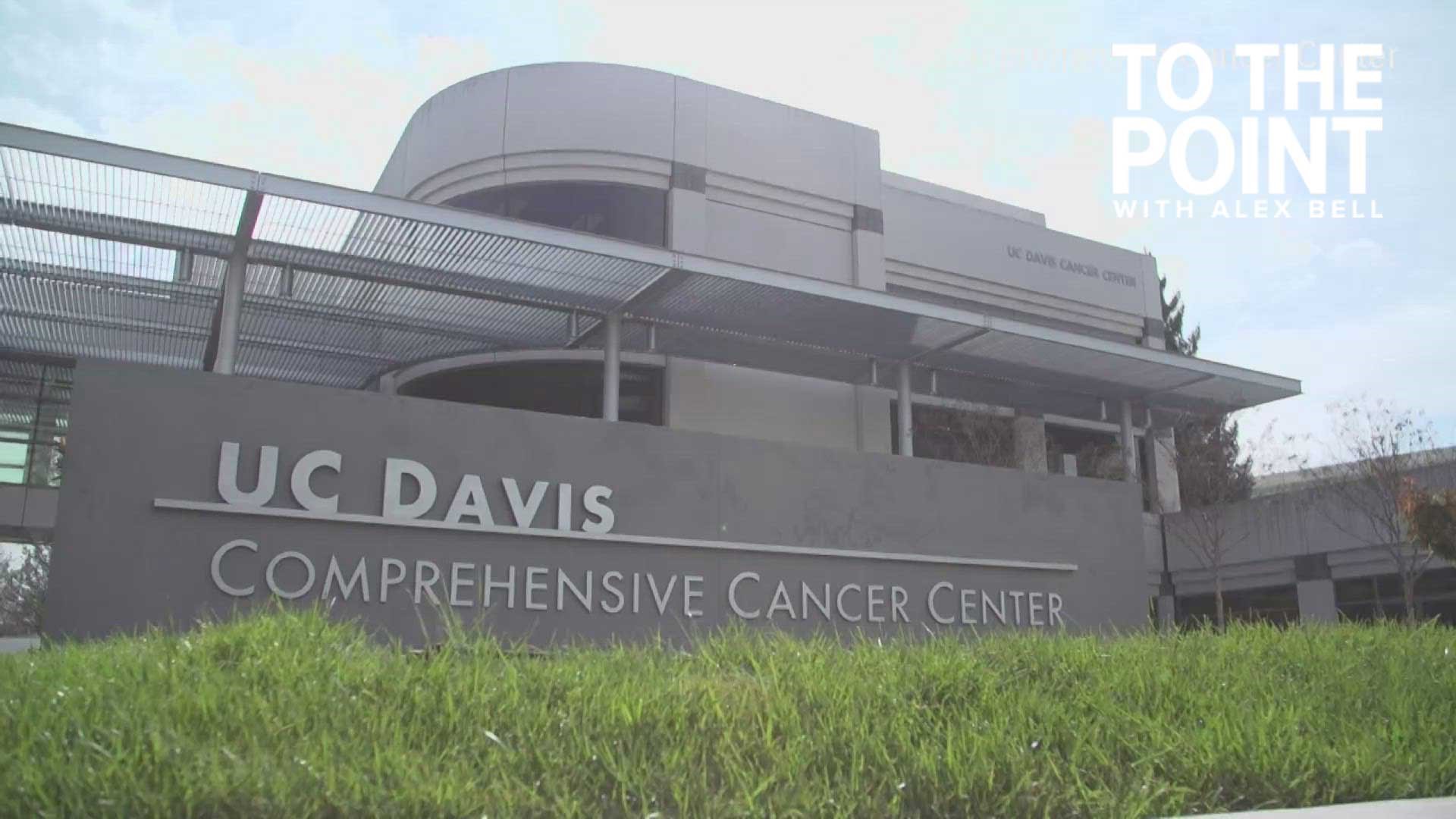SACRAMENTO, Calif. — November is Lung Cancer Awareness Month and researchers need your help to understand how it’s killing an unexpected group — non-smoking Asian American women.
ABC10 went into the lab with the lead scientist and spoke with a Sacramento woman who shared her story in hopes of saving lives.
Susan Sun Huang came to Sacramento from China in 1986 with her husband Peter and their two children, Jesse and Amy.
“Four of us. Eight suitcases total. Two in each one of our hands and $200 cash in my dad’s pocket,” said Amy Tong.
Her mother loved singing in choir and being a grandma. Tong is the state’s secretary of government operations.
“This agency is really responsible for the wellness and operating of the state of California,” said Tong.
Community service is a passion she shares with her family and her appointment by Governor Gavin Newsom was a proud moment, but their lives changed one night after Susan’s choir practice.
She noticed a cough which led to doctor’s visits, testing and a devastating lung cancer diagnosis.
The news seemed to come out of nowhere. Susan was a non-smoker and avoided secondhand smoke exposure.
Cases like Susan’s are why the UC Davis Comprehensive Cancer Center is raising awareness about the deadly cancer and promoting an opportunity to help research its potential causes.
“I, without hesitation, I want to be part of it. It's really helping [the] legacy of my mom,” said Tong.
Tong is one of hundreds of Asian American women in Northern California submitting DNA samples for this groundbreaking study.
“We're doing the research to find the genetic factors or mutations in these cancers,” said Clifford Tepper, the co-director of UC Davis’ Comprehensive Cancer Center’s Genomic Shared Resource.
An estimated 57% of Asian American women diagnosed with lung cancer have never smoked compared to 15% of all other women.
“Lung cancer in smokers is actually decreasing, this is increasing and it doesn't make sense,” said Tepper.
The lab is working to unlock the genetic mysteries behind the deadly cancer.
“The bigger our database becomes… and different types of analysis we can do to try to find sort of common factors that might account for this disease occurring in Asian Americans,” he said.
“To have not only 20 patients but a couple hundred or more patients contribute their time and tumors to our study is heroic,” said Tepper.
But he says hundreds more are needed to not only have the information to learn from but also because Asian Americans historically haven’t been included in many medical studies.
“To be able to zero in and focus on this specific population and then compare it to other ethnic groups is extremely important,” he said.
Sacramento County now joins other counties in California with high Asian American populations enrolling participants into the study. It’s a moment of your time that could save lives.
“Make this be part of your task to give back to the community,” said Tong.
Here’s who is eligible:
- Women who have been recently diagnosed with lung cancer or their family members who have never smoked, are between the ages of 21-90 and live in counties with high Asian populations, including Sacramento, Alameda and Contra Costa counties.
Participating only takes a few easy steps you can do at home like filling out a survey and giving a small saliva sample. You will get a $75 gift card as a thank you.
If you are interested in joining this study, please contact fansstudy@ucsf.edu or call 833-326-7883.
WATCH MORE ON ABC10: Prostate cancer survivor shares message for Men's Health Awareness Month



















